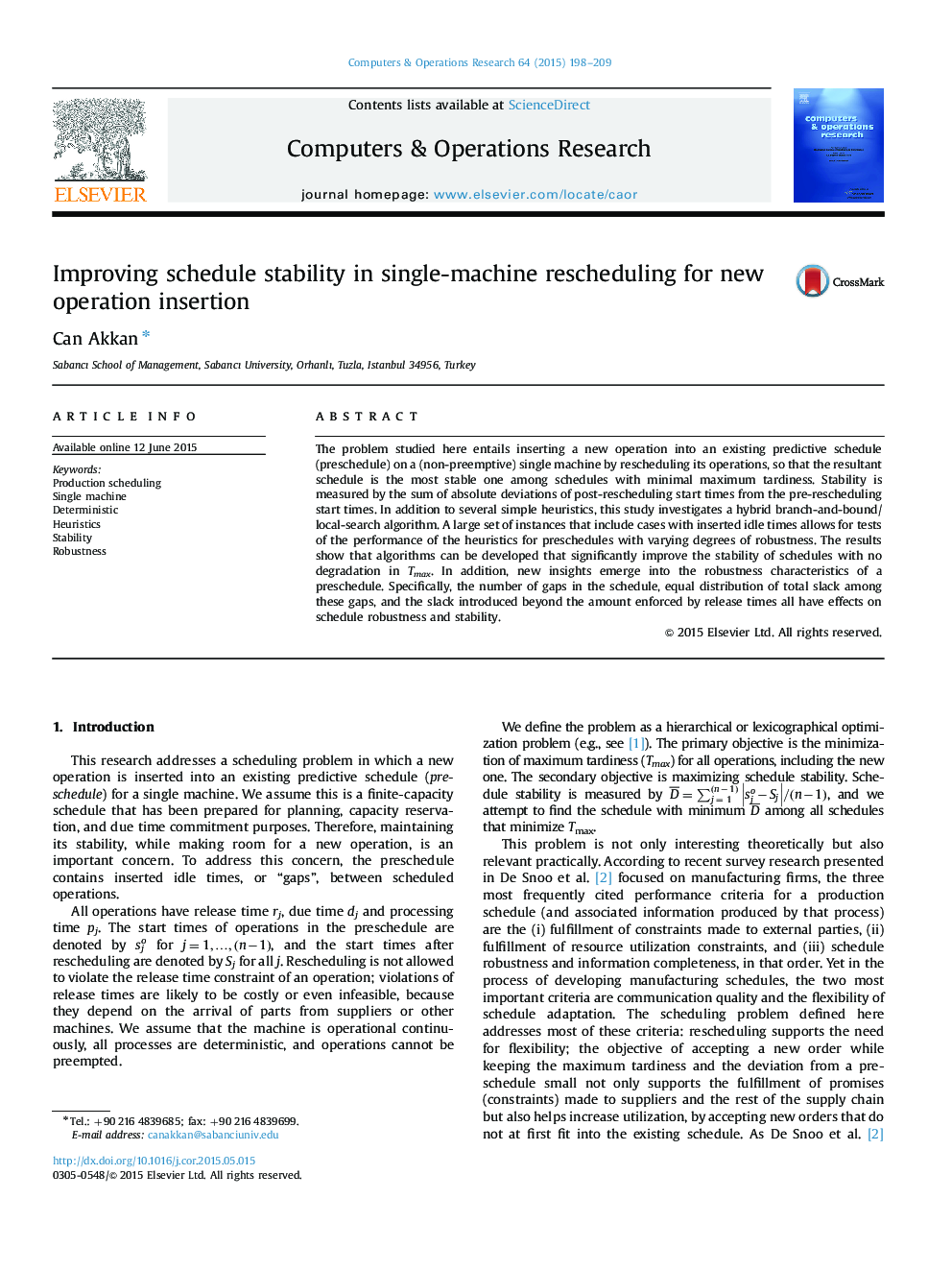| Article ID | Journal | Published Year | Pages | File Type |
|---|---|---|---|---|
| 474615 | Computers & Operations Research | 2015 | 12 Pages |
The problem studied here entails inserting a new operation into an existing predictive schedule (preschedule) on a (non-preemptive) single machine by rescheduling its operations, so that the resultant schedule is the most stable one among schedules with minimal maximum tardiness. Stability is measured by the sum of absolute deviations of post-rescheduling start times from the pre-rescheduling start times. In addition to several simple heuristics, this study investigates a hybrid branch-and-bound/local-search algorithm. A large set of instances that include cases with inserted idle times allows for tests of the performance of the heuristics for preschedules with varying degrees of robustness. The results show that algorithms can be developed that significantly improve the stability of schedules with no degradation in Tmax. In addition, new insights emerge into the robustness characteristics of a preschedule. Specifically, the number of gaps in the schedule, equal distribution of total slack among these gaps, and the slack introduced beyond the amount enforced by release times all have effects on schedule robustness and stability.
